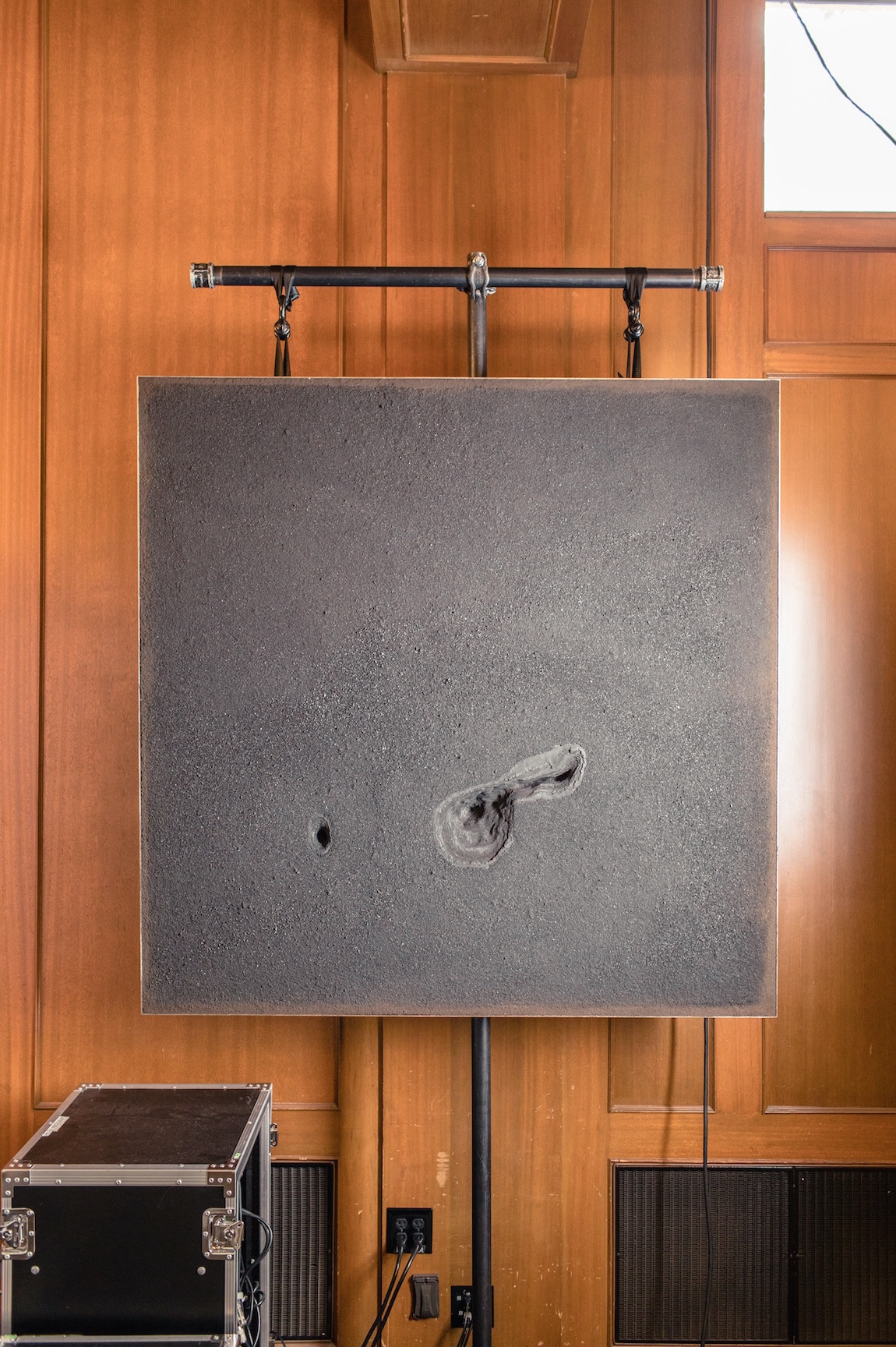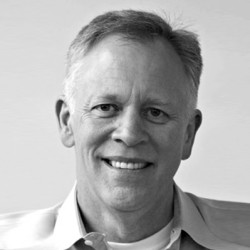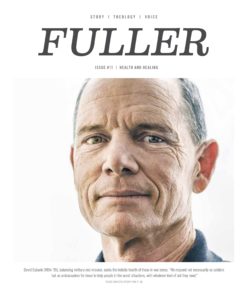
Through my years as a pastor, health issues were a continuous fugue under the life of our congregation. If someone had good—or reasonably good—health, they were concerned with keeping it that way. If they didn’t have it, sickness colored or threatened everything else. In a community, each point in the spectrum is occupied by some-one, so we were in continuous motion of rejoicing and weeping together.
Health issues expose our vulnerability like little else. Our finitude comes into sharp focus, and it’s a view everyone hates. Even the most healthy among us will eventually face that we are all small-framed, soft-bodied, short-lived creatures. We could do crunches all day, every day, and still be forced to admit that “rock-hard abs” are only ever a metaphor. However we may strain to deny the facts much of the time, the clock ticks ominously behind our fears of one day hearing the diagnosis: terminal.
All of this explains why health issues so readily and urgently expose our theodicy questions: Why? Why me or my loved one? Why now? Doubt that might otherwise be quieted often persists in the aftermath of a concerning diagnosis, accompanied by arguments and protestations. Anger and confusion are often present, too, with tears and exasperation. Biological analyses often trigger theological crises.
What could be less surprising? After all, Christian worship centers on the God who took on flesh, who suffered, died, and rose back to life; we are invited, indeed urged, to love God with our heart, mind, soul, and strength. In other words, we are to seek and follow God with every dimension of our embodied selves. We reject any theology that makes our materiality itself the enemy. We worship Jesus Christ who for our sake ushered in the new creation. What could we imagine then but that this same God has an interest in—a passion for—our physical well-being?
The national and global emergence of the so-called prosperity gospel has taken this vulnerability and leveraged it to promote a “health and wealth” gospel. Such a movement faces anxious theodicy questions, and it claims that the problem is not with God but with us. Since God has triumphed over death in Christ, any crisis of health is not a God-centered one but a faith-centered one, they argue. If one knows that God wants health, the presence of illness presumably reveals either a weakness of faith or sinfulness in the lives of those who suffer with illness.
Illness and death are difficult enough without the burden of being labeled a crushing spiritual failure. As others have said, the prosperity gospel is a case of an over-realized eschatology, assuming or pushing for a more imminent fulfillment of kingdom hope than is yet present. Or perhaps it’s just an attempt to deny death by pretending we are in control instead of God. Theology matters.
I have experienced many health issues over the years even though, overall, most would consider mine to be a healthy life. One of the more prolonged health crises for me involved a bicycle accident that threatened my life and largely took me out of work and routine for over a year. I was so deeply grateful to be surrounded by a community that helped me ask what it meant to trust God in such a season and did not ask why God allowed it.
Having walked with several hundred people to their deaths, I find deep hope in a different theology of health, life, and death. I have utter confidence in a God who can surprise us with healing and longer life, who as friend and shepherd walks with us daily, and who in love and mystery holds us in our vulnerability and pain—indeed, who encompasses and eventually triumphs over even death itself. We should never want less than God wants to give us, but neither should we presume upon God, God’s timing, or God’s gifts.
We are dust and to dust we shall return. Our health comes graciously in pieces and in seasons along that dustiness. In the midst of it, may we seek the wholeness that biology alone embodies but cannot and does not finally contain.
+ Eric Tai’s (MAICS ’17) “Bóhu,” pictured, along with companion piece “Tóhu,” weigh over 100 pounds each, requiring many people to hang them for the season of Lent. “Sometimes the margins between life and death and joy and despair are so fine,” he says. “These artworks are a way to meditate on that.”
 A través de mis años como pastor, los problemas de salud fueron un asunto de interés continuo para la vida de nuestra congregación. Si alguien tenía buena salud, o razonablemente buena, se preocupaba por mantenerla de esa manera. Si no la tenía, la enfermedad permeaba o amenazaba todo lo demás. En una comunidad, cada punto en el espectro es ocupado por alguien, así que estábamos en continuo movimiento de regocijo y llanto como comunidad.
A través de mis años como pastor, los problemas de salud fueron un asunto de interés continuo para la vida de nuestra congregación. Si alguien tenía buena salud, o razonablemente buena, se preocupaba por mantenerla de esa manera. Si no la tenía, la enfermedad permeaba o amenazaba todo lo demás. En una comunidad, cada punto en el espectro es ocupado por alguien, así que estábamos en continuo movimiento de regocijo y llanto como comunidad.
Los problemas de salud exponen nuestra vulnerabilidad como pocas otras cosas. Nuestra finitud entra en foco agudo, y es una perspectiva que todos odian. Incluso los más sanos entre nosotros eventualmente se enfrentarán a que todos somos criaturas pequeñas, de cuerpo blando y de vida corta. Podríamos hacer abdominales todo el día, todos los días, y todavía ser forzados a admitir que los abdómenes duros son siempre una metáfora. Sin embargo, podemos esforzarnos por negar los hechos gran parte del tiempo, el reloj avanza ominosamente detrás del miedo a un día oír el diagnóstico: terminal.
Todo esto explica por qué las cuestiones de salud tan fácilmente y con urgencia exponen nuestras preguntas de teodicea: ¿por qué? ¿por qué yo o mi ser querido? ¿por qué ahora? La duda, que de otra manera podría ser sienciada, a menudo persiste con las secuelas de un diagnóstico preocupante, acompañada de argumentos y protestas. La ira y la confusión a menudo están presentes, también, con lágrimas y exasperación. Los análisis biológicos a menudo desencadenan crisis teológicas.
¿Qué podría ser menos sorprendente? Después de todo, el culto cristiano se centra en el Dios que tomó carne, que sufrió, murió y resucitó; estamos invitados, de hecho, exhortados, a amar a Dios con nuestro corazón, mente, alma y fuerza. En otras palabras, debemos buscar y seguir a Dios con cada dimensión de nuestros seres encarnados. Rechazamos cualquier teología que haga de nuestra materialidad el enemigo. Adoramos a Jesucristo que por nuestro bien hizo posible la nueva creación. ¿Qué podríamos imaginar, sino que este mismo Dios tiene un interés en y una pasión por nuestro bienestar físico?
El surgimiento en lo nacional y el mundo del llamado evangelio de la prosperidad ha tomado esta vulnerabilidad y la ha aprovechado para promover un evangelio de “salud y riqueza”. Tal movimiento se enfrenta en preguntas de teodicea y afirma que el problema no tiene que ver con Dios sino con nosotros. Puesto que Dios ha triunfado sobre la muerte en Cristo, cualquier crisis de salud no tiene que ver con la actitud de Dios sino con nuestra fe, argumentan. Si uno sabe que Dios quiere salud, la presencia de la enfermedad presumiblemente revela ya sea una debilidad en la fe o la presencia de pecado en las vidas de aquellos que sufren enfermedad.
La enfermedad y la muerte son ya bastante difíciles sin la carga extra de ser etiquetados como un aplastante fracaso espiritual. Como otros han dicho, el evangelio de la prosperidad es un caso de escatología sobre-stimada, asumiendo o empujando un cumplimiento inminente de la esperanza del reino al que aún no podemos acceder. O tal vez es sólo un intento de negar la muerte fingiendo que estamos en control en lugar de Dios. La teología importa.
He experimentado muchos problemas de salud a través de los años, aunque, en general, la mía sería considerada por la mayoría como una vida sana. Una de las crisis de salud más prolongadas para mí involucró un accidente de bicicleta que amenazó mi vida y en gran medida me sacó del trabajo y de la rutina durante más de un año. Estaba tan profundamente agradecido de estar rodeada por una comunidad que me ayudó a preguntar lo que significaba confiar en Dios en esa época y no preguntó por qué Dios lo permitía.
Habiendo caminado con varios centenares de personas hasta sus muertes, encuentro una esperanza profunda en una teología diferente de la salud, la vida y la muerte. Tengo absoluta confianza en un Dios que puede sorprendernos con sanidad y una vida larga, quien como amigo y pastor camina con nosotros diariamente, y que en amor y en misterio nos sostiene en nuestra vulnerabilidad y dolor, que abarca y finalmente triunfa sobre incluso la muerte misma. Nunca debemos querer menos de lo que Dios quiere darnos, pero tampoco debemos presumir con Dios, el tiempo de Dios, o los dones de Dios.
Somos polvo y al polvo volveremos. Nuestra salud viene de a pedazos y por temporadas con este polvo que todos somos. En medio de ella, podemos buscar la totalidad que la biología solo encarna pero que no puede contener y no contiene.
 제가목사로일해오면서건강에대한이슈는우리 목회의 삶 속에서 지속적으로 제기되는 문제였습니다. 사람들은 건강이 좋으면, 아니 좋은 편이면, 그 건강을 지키려고 노력했고 건강이 좋지 않으면 질병이 다른 모든 분야를 오염시키거나 위협했습니다. 공동체 안에서는 건강과 허약이라는 스팩트럼 안의 각 점에 누군가가 놓여 있기 때문에 우리는 함께 기뻐하고 슬퍼하는 지속적인 움직임을 계속하고 있었습니다.
제가목사로일해오면서건강에대한이슈는우리 목회의 삶 속에서 지속적으로 제기되는 문제였습니다. 사람들은 건강이 좋으면, 아니 좋은 편이면, 그 건강을 지키려고 노력했고 건강이 좋지 않으면 질병이 다른 모든 분야를 오염시키거나 위협했습니다. 공동체 안에서는 건강과 허약이라는 스팩트럼 안의 각 점에 누군가가 놓여 있기 때문에 우리는 함께 기뻐하고 슬퍼하는 지속적인 움직임을 계속하고 있었습니다.
건강 문제 만큼 우리의 나약성을 드러내는 것은 없습니다. 건강은 우리 모두가 그토록 싫어하는 인간의 유한성이라는 것에 초점을 두게 합니다. 우리 중에서 가장 건강한 사람들 조차도 결국 인간은 작고, 연약한 몸을 가진, 단명의 생명체라는 사실에 직면하게 됩니다. 매일 하루 종일 윗몸일으키기를 해도 “바위처럼 단단한 복근”은 여전히 은유적인 표현일 뿐이라는 것을 인정해야 합니다. 우리가 대부분 이 사실을 아무리 부인하려고 노력해도, 언젠가는 들을 것 같은 말기 진단의 두려움 뒤로 시계는 불길하게도 재깍거리며 흐르고 있습니다. 이모든것이왜건강상의문제가우리로하여금그렇게 쉽고 시급하게 신정론적인 질문을 하게 하는지 설명해 줍니다: 왜? 왜 나지? 왜 내가 사랑하는 사람들에게? 왜지금?평소같으면조용해질만한의심도질병을 진단 받고 난 후에는 논쟁과 항의로 지속됩니다. 눈물과 격분을 동반한 분노와 혼란도 흔히 나타납니다. 생물학적 분석은 종종 신학적 위기를 가져옵니다.
놀라운 일이 아니지 않습니까? 결국, 기독교 신앙의 중심은 사람의 몸으로 오셔서 고통 당하시고 죽으신 후 다시 살아나신 하나님입니다: 우리는 마음을 다하고 목숨을 다하고 뜻을 다하여 하나님을 사랑하도록 초대, 아니 강력히 권고, 받았습니다. 다시 말해, 우리는 우리의 형체화된 모습 그대로 모든 차원에서 하나님을 찾고 따라야 합니다. 우리는 인간의 유형성 자체를 적으로 만드는 그 어떤 신학도 거부합니다. 우리는 우리를 위해 새로운 창조물을 주신 예수 그리스도를 예배합니다. 그렇다면 어떻게 이와 같은 하나님이 우리의 육체적 안녕에 관심을 갖고 이에 열정을 보인다고 생각하지 않을 수 있겠습니까?
소위 번영 신앙이라는 국가적, 세계적 출현은 인간 육체의 연약성에 초점을 두고 “건강과 부”의 복음을 촉진하기 위해 이용되고 있습니다. 그러한 운동은 불안한 신정론적 질문에 직면하게 되고, 문제가 하나님에게 있는 것이 아니라 우리에게 있다고 주장합니다. 번영 신앙의 추종자들은 하나님이 그리스도를 통해 죽음을 이기셨기 때문에 건강 상의 문제는 하나님이 허락한 것이 아니라 믿음의 깊이 때문이라고 주장합니다. 하나님이 우리가 건강하기를 원하신다는 것을 안다면 우리가 질병을 앓는 이유는 믿음이 약해서 이거나 아니면 앓는 사람의 삶에 죄가 있음을 드러내는 것이라고 생각합니다.
병과 죽음은 영적 실패라는 치명적인 꼬리표를 달지 않아도 충분히 어렵습니다. 다른 사람들이 말했듯이, 번영 신앙은 하나님 나라에 대한 희망을 현재 존재하는 것보다 더 크게 가정하거나 아니면 이를 즉각적으로 달성하고자 하는 과장된 종말론의 한 예입니다. 아니면 어쩌면 하나님이 아닌 우리가 통제권을 가지고 있는 것처럼 가장하여 죽음을 부정하려는 시도일지도 모릅니다. 그래서 신학은 중요한 것입니다.
저는 대부분의 사람들이 볼 때 전반적으로 건강한 삶을살고있지만,수년간많은건강문제를 겪고 있습니다. 제 삶을 위협했던 자전거 사고가 저에게는 오래 지속된 건강 문제 중의 하나입니다. 사고로1년이상직장생활과일상적인일을하지 못하게 되었습니다. 저는 그 시기에 하나님이 왜 이런 일을 허락하셨는지를 묻지 않고 하나님을 믿는다는 것이 어떤 의미인지를 물을 수 있도록 도와준 공동체에 속해 있다는 것에 매우 감사했습니다.
죽음을앞둔수백명의사람들과함께동행한 경험을 바탕으로 저는 건강, 삶, 죽음에 대한 새로운 신학 안에서 깊은 희망을 발견합니다. 저는 치유와 장수로 우리를 놀라게 하시고, 친구와 목자로서 매일 우리와 동행하시며, 사랑과 기적을 통해 나약함과 고통 속에서 우리를 붙잡으시고, 죽음을 허락하시지만 결국 이기시는 하나님을 전적으로 믿습니다. 우리는 하나님이 우리에게 주고싶어하는것보다더적게원해서는절대로 안 되지만 하나님의 시간과 하나님의 선물을 추측해서도 안 됩니다.
우리는 흙으로 만들어 졌고 흙으로 돌아갑니다. 우리의 건강은 그 흙성에 따라 하나님의 은혜로 말미암아 조금씩 시기에 맞게 주어집니다. 그 가운데서, 우리는 결국 우리 존재의 전체가 되지못하고될수도없는육체적인모습만으로 형체화된 완전함을 추구할 수 있기를 바랍니다.


